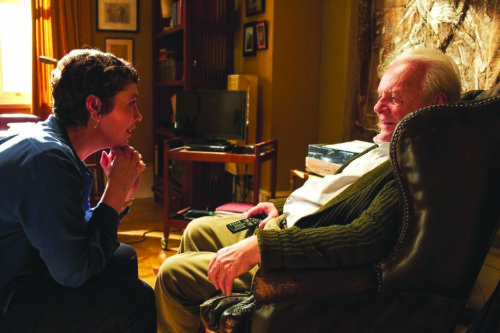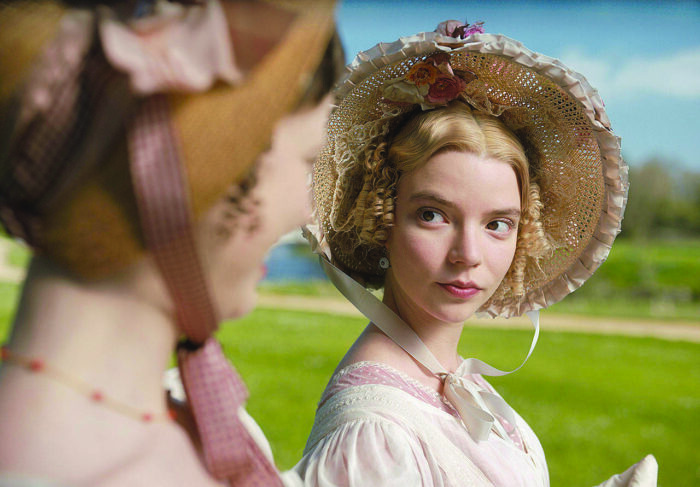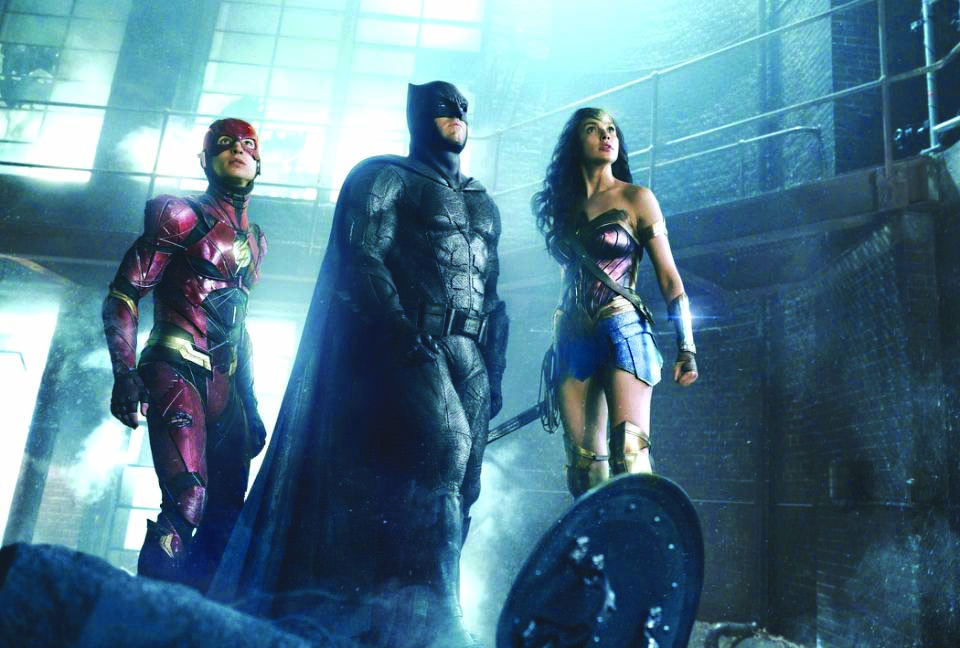Godzilla fights King Kong in Godzilla vs. Kong — what, you wanted me to be all “visually stunning allegory about humanity’s bravado in its relationship with the natural world”?
I mean, sure, I guess that’s in there (the allegory, sorta; the visuals have their moments even if they’re never quite as awe-inspiring as, for example, that parachute jump in the 2014 Godzilla). You can find the deeper meaning if you try really hard to pick it out, like you’re digging out the mushrooms from a steak and cheese sandwich, but why bother? Either you’re watching this “monsters fight!” movie at a movie theater on one of your extremely rare trips to a theater in this past year or you’re watching it for a fun movie night at home (the movie is on HBO Max until the end of April). Why muddy either of those all-cheese-no-broccoli experiences with, like, “deeper meaning” or “multi-dimensional characters” or “consistently engaging story-telling”?
There are, to some extent, two movies with two sets of characters happening here. In the Kong movie, Hollow Earth explorer Nathan Lind (Alexander Skarsgard) gets Kong scientist Ilene Andrews (Rebecca Hall) and her adopted daughter Jia (Kaylee Hottle) to bring Kong from his Truman Show-like Kong habitat on Skull Island to the entrance of a tunnel that will take the explorers into the land-before-time-ish world that exists inside the Hollow Earth (which is where everyone assumes the Titans, as all the giant monsters are called, came from at some point). Apex, a bad-guy corporate entity, has hired Nathan to find the power source that serves as this inner world’s sun so they can power a Godzilla-fighting weapon, which I don’t think was spoiled in the trailers, so I won’t spoil it here except to say it turns out to be pretty fun. Nathan uses Kong as a guide to the Hollow Earth power source because homing pigeons something something and Ilene and Jia come too in part because Jia and Kong are friends and can communicate via sign language — and I feel like the “King Kong speaks sign language” element of this story isn’t developed nearly enough. I feel like being able to talk directly to a Titan and find out what it wants would be a bigger deal.
Meanwhile, teen Madison (Millie Bobby Brown), who was in the last Godzilla movie, and her buddy Josh (Julian Dennison) track down Titan-conspiracy podcaster Bernie (Brian Tyree Henry). He has been covertly reporting on Apex, and Madison agrees with him that they must be doing something shady if Godzilla attacked an Apex facility after years of peaceful coexistence with humanity. This is the quippier of the two halves of this movie.
Godzilla and Kong get two big battles against each other, Kong gets to romp through Hollow Earth and both creatures get to fight other stuff. The monsters are fun, the humans are silly and the movie seems aware of this — never requiring us to take the humans too seriously or forgetting that the only characters we really care about are the giant gorilla and the giant lizard.
I think there are two ways to approach this movie. One is to spend time wondering which characters you’re supposed to remember from previous Kong and Godzilla movies and how this fits in to the overall cinematic universe (Legendary Entertainment’s MonsterVerse, apparently, according to a Wikipedia article and I think reading the Wikipedia entry about the MonsterVerse when one of these films is released is the only time I ever read or hear any MonsterVerse discussion). I was maybe trying to do this for the first 20 or so minutes but quickly gave up. The other, more fulfilling way to view this movie is to passively enjoy the scenes that aren’t Godzilla fighting Kong and then turn up the TV and pay close attention for the scenes that are about Godzilla fighting King Kong. Or Godzilla or Kong whomping other things. Big monsters fighting, that’s what I’m here for, and on that this movie basically delivers. Think of the rest of the movie as an opportunity to get more snacks, chat with your movie-watching companions or look up stuff about the MonsterVerse. This movie is a solid B during monster fights, an indifferent C otherwise, so — let’s call it a relaxed, good-time B-.
Rated PG-13 for intense sequences of creature violence/destruction and brief language, according to the MPA on filmratings.com. Directed by Adam Wingard with a screenplay by Eric Pearson and Max Borenstein, Godzilla vs. Kong is an hour and 53 minutes long and distributed by Warner Bros. It is in theaters and streaming until April 30 on HBO Max.
Featured photo: Godzilla vs. Kong






